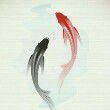
“科学”用英语怎么说?
science
读音:英 [ˈsaɪəns] 美 [ˈsaɪəns]
n.科学;理科;学科;技术,知识
复数: sciences
记忆技巧:sci 知道 + ence 状态,行为 → 知道,知识 → 学问
1、The best discoveries in science are very simple.
最伟大的科学发现都非常简单。
2、Physics is the best example of a science which has developed strong, abstract theories.
物理学是自然科学中发展出了强有力的抽象理论的最好例子。
3、His work advanced the science of microbiology.
他的工作促进了微生物学这门科学。
扩展资料:
同义词:knowledge
英 [ˈnɒlɪdʒ] 美 [ˈnɑ:lɪdʒ]
n.了解,理解;知识(表示多方面的知识时有复数knowledges这一用法);学科;见闻
例句:
1、She told Parliament she had no knowledge of the affair.
她告诉议会她对此事并不知情。
2、Alec never carried a gun to my knowledge
据我所知亚历克从来不带枪。
3、You can let your kids play here, safe in the knowledge that they won't get sunburn.
你可以放心让孩子们在这儿玩,他们肯定不会晒黑。
knowledge与以下词性连用:
1、acquire knowledge获取知识
2、gain knowledge获得知识
3、have knowledge具备知识
4、lack knowledge缺乏知识
5、require knowledge需要知识
6、test your knowledge考查你的知识
“科学”的英文是:science
读音:英 ['saɪəns] 美 ['saɪəns]
释义:
1、n. 科学;技术;学科;理科
2、n. (Science)人名;(英)赛恩斯
例句:
1、She specializes in computer science.
她专攻计算机科学。
2、He developed an interest in science.
他养成了对科学的兴趣。
3、Wars stunted the development of science in the world.
战争使世界的科学发展受到了抑制。
4、The book stands out as one of the notable landmarks in the progress of modern science.
这部著作是现代科学发展史上著名的里程碑之一。
5、We must achieve modernization of science and technology, otherwise we will lag behind other nations.
我们必须实现科学技术现代化,否则我们要落后于其他国家。
2016-09-03
科学
science 英[ˈsaɪəns] 美[ˈsaɪəns]
n. 科学; 理科; 学科; 技术,知识;
[例句]The best discoveries in science are very simple.
最伟大的科学发现都非常简单。
英 [ˈsʌbdʒɪkt] 美 [ˈsʌbdʒekt]
n. 主题,话题; 学科,科目; [哲] 主观;
adj. 须服从…的; (在君主等) 统治下的;
v. 提供,提出; 使…隶属;
[例句]It was I who first raised the subject of plastic surgery..
是我第一个提到整形手术这个话题的。
[其他] 第三人称单数:subjects 复数:subjects 现在分词:subjecting 过去式:subjected 过去分词:subjected
翻译成英语是:science。
——————希望帮到你,满意请采纳。




